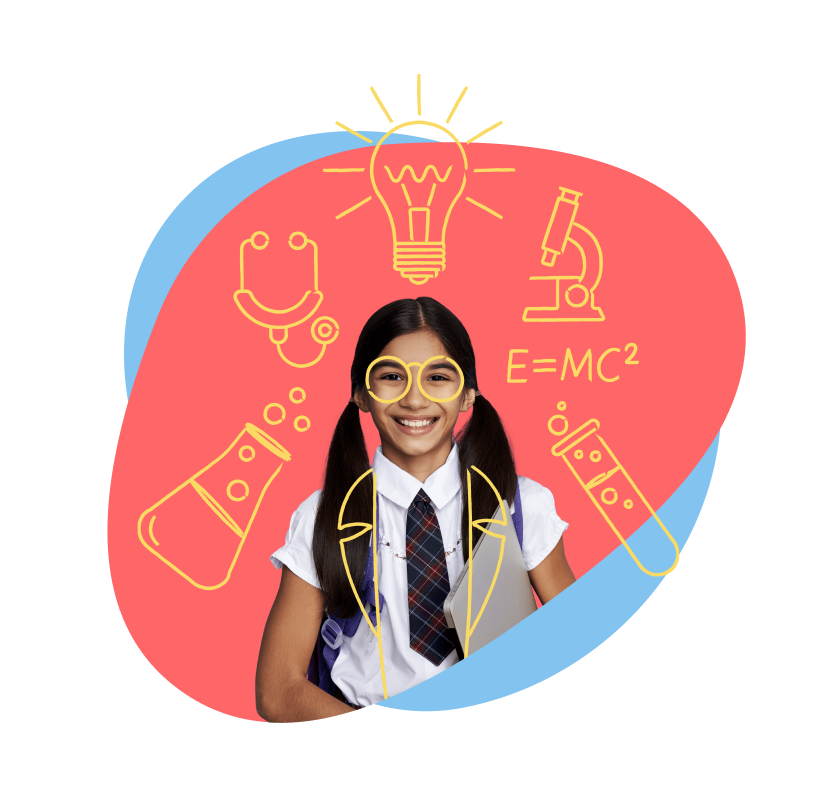ChatGPT and other AI tools are changing how students complete schoolwork.
Students turn to AI to help them brainstorm, build out projects, finish assignments, and draft essays. Students love the simplicity of AI, but getting solutions easily is not always for the better. A new study from MIT’s Media Lab shows that when students rely too much on AI, their thinking skills decline, their writing suffers, and their brains become less engaged, leading to cognitive decline.
According to the study, students who used ChatGPT or other LLMs (Large Language Models) while completing SAT-style essays showed the lowest levels of brain activity. Furthermore, their writing became increasingly formulaic, forgettable, and lacking original thought. Over time, students became increasingly passive and disengaged. Many couldn’t recall what they’d written or revise their work without AI support, proof that they weren’t truly learning.
In a world of immediate responses and instant information, finding the value in taking the slower route may not be the most popular option. However, it’s important to remember that true learning draws on cognitive skills that don’t require any technology at all: deep thinking.
This study is a reminder that real learning is an active process—not passive—and it requires students to think for themselves.
What the MIT Study Found

The study, conducted by cognitive scientists at MIT’s Media Lab, divided 54 students into three groups. Each group was tasked with writing multiple SAT-style essays under different conditions:
- One group used ChatGPT
- One group used Google Search (ChatGPT and other LLM prohibited)
- One group used no tools at all
While students wrote, researchers monitored their brain activity using EEG sensors to detect engagement levels, attention, and cognitive processing across 32 regions of the brain.
Here’s what happened:
The ChatGPT group had the lowest brain activity. They were less engaged and focused, and demonstrated weaker memory and executive function. Their essays became increasingly similar to one another. Teachers who evaluated the work described it as “soulless,” filled with repetitive phrasing and shallow arguments.
These students retained little of what they wrote. When asked to revise an earlier essay without the help of ChatGPT, many couldn’t remember what they had written. Over time, they relied more heavily on AI. By the third essay, many students weren’t even pretending to do the work themselves; they were simply copying and pasting AI responses with minimal changes/edits.
In contrast, the “brain-only” group, those who wrote their essays with no digital tools, showed:
- Higher engagement and stronger brain activity, especially in regions linked to memory, creativity, and problem-solving
- Better memory recall and greater satisfaction with their work
- More original and thoughtful writing
Even the Google Search group fared better than the AI group, showing more active engagement in researching and constructing ideas rather than passively accepting pre-written content.
Why Passive Learning Is a Problem
Relying on AI for schoolwork might feel productive in the short term, but it skips the mental processes that lead to long-term learning. When students simply prompt ChatGPT or other LLMs and paste the result, they’re not analyzing, synthesizing, or reflecting. They’re just consuming.
That kind of passive learning:
- Weakens neural connections
- Reduces memory retention
- Limits the development of critical thinking and creativity
- Encourages intellectual laziness
As one of the researchers put it: “The task was executed, but nothing was integrated into the brain’s memory networks.”
This is especially concerning for children and teens, whose brains are still developing. Cognitive habits formed during school years carry into adulthood, so if students learn to outsource thinking now, they may struggle with deeper learning later in life.
The consequences are clear: when students don’t think for themselves, their brains don’t grow.
The Oxford Learning Difference: Teaching Students How to Learn
At Oxford Learning, we don’t just help students get the right answers. We help them develop the skills and strategies they need to arrive at those answers independently.
This is what sets Oxford Learning apart from AI tools and standard tutoring methods. Our approach is rooted in cognitive development and metacognition, in other words, teaching students to think about their thinking.
Through personalized tutoring and our Dynamic Assessment, we help students:
- Understand how they learn best
- Build stronger memory and retention strategies
- Practise active learning techniques
- Strengthen executive functioning skills like focus, organization, and self-monitoring
- Gain confidence through intellectual ownership of their work
Our tutors encourage curiosity, guide problem-solving, and provide feedback that helps students grow, not just perform.
AI Is a Tool, Not a Teacher
AI tools like ChatGPT are not inherently bad.
In fact, the MIT study found that when students used AI after doing the work themselves, their brain activity actually increased. They were able to use the tool more effectively because they understood the content and had developed a solid foundation first.
This proves an important point that AI can support learning, but not replace it.
Oxford Learning helps students build that foundation first. By developing real-world thinking skills, students become better equipped to use technology in smart, productive, and balanced ways. They become active learners who don’t just passively consume information; they question, apply, and retain it.
From Brainpower to Lifelong Learning
What happens in the classroom doesn’t stay in the classroom. The skills students develop today shape how they think, work, and solve problems for the rest of their lives.
The reality is that the learning process should be a bit challenging. It should take effort, motivation, and drive. Figuring something out and thinking about a problem on their own is how real cognitive development happens for students. It’s how they build self-esteem and confidence in their lives.
True learning simply does not happen as a response to a prompt input into a screen.
Oxford Learning’s programs are designed to help students:
- Stay curious and engaged
- Take ownership of their learning
- Strengthen core academic abilities
- Build confidence in their own thinking
These are skills no AI can provide and no future technology can replace.
Want to Future-Proof Your Child’s Learning?
Don’t let convenience come at the cost of your child’s cognitive development. With Oxford Learning, students build the skills they need to succeed today, tomorrow, and long after school is done.
Learn more about our cognitive-based approach by helping your child become a confident, critical thinker—no matter how technology evolves.




